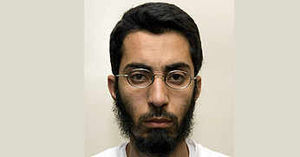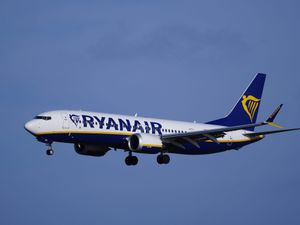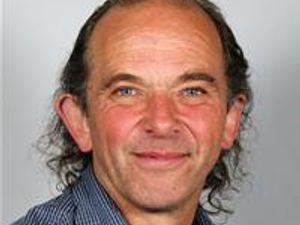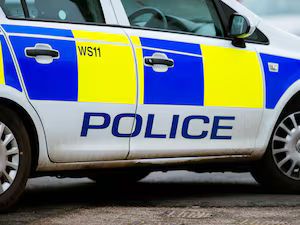Doctor tipped for the top
Mohammed Asha – a doctor who treated hundreds of patients at Shropshire's biggest hospital – was expected to become one of the country's top brain surgeons.

Mohammed Asha – a doctor who treated hundreds of patients at Shropshire's biggest hospital – was expected to become one of the country's top brain surgeons.
But that high-flying career was suddenly shattered when the 28-year-old was stopped by armed police on the M6 motorway and dragged from his car.
See also: Asha cleared of terror charges
Dr Asha was taking his wife Marwa Dana and their son, Anas, who will turn three next month, to a jewellers ahead of their wedding anniversary when he was arrested as a key member of the "terror cell" behind the two failed London bomb attacks and the third successful Glasgow attack.
His arrest came 10 months after he had said farewell to his colleagues at the Royal Shrewsbury Hospital where he had trained as a junior physician.
The arrest was a shock for the Saudi Arabian born young medic, who had left his home country of Jordan to follow his dream of becoming one of the country's top brain surgeons.
His post-graduate training in the UK saw him treat patients at the Prince Phillip Hospital in Llanelli in 2005, before moving to the Royal Shrewsbury Hospital in August of that year.
It was in Shrewsbury where Dr Asha enjoyed his happy, family life – posing for photographs in the town square with his wife, who was clothed in traditional Muslim dress, and their son.
 The Asha family moved from Shrewsbury when he left his post in August 2006.
The Asha family moved from Shrewsbury when he left his post in August 2006.
The couple married in 2004 after he wooed her strict Muslim father and persuaded him he would be a suitable husband.
During their time in Shropshire the Asha family posed by the town's Abbey – the picture of a normal family enjoying the sites of Shrewsbury.
But Dr Asha was befriended by Bilal Abdulla and Kafeel Ahmed after travelling to Cambridge to train at Addenbrookes Hospital.
Little did he know it would be this friendship which would make him one of the three main suspects in the London and Glasgow terror attacks.
The talented doctor wept when detectives told him he was a suspect in the car bomb conspiracy.
Dressed in a paper suit at high security Paddington Green police station, he told detectives: "It's just I think I've been a fool all the time."
After first meeting in January 2005, doctors Asha and Abdulla became close friends, meeting regularly and exchanging phone calls as they pressed ahead with their NHS careers.
Dr Asha even helped Abdulla with his career and urged him to become as successful as he planned to be. The father-of-one knew Abdulla harboured deep anger against the West but thought a satisfying career in medicine and a wife would steer him away from extremism.
 The Woolwich Crown Court jury accepted Dr Asha was nothing more than an unwitting dupe, who was betrayed by the Iraqi medic and left as "collateral damage".
The Woolwich Crown Court jury accepted Dr Asha was nothing more than an unwitting dupe, who was betrayed by the Iraqi medic and left as "collateral damage".
They disregarded extremist material found on his laptop, apparently downloaded by Abdulla, and a handwritten poem addressed to Osama bin Laden found at his home.
Colleagues at North Staffordshire University Hospital, where Dr Asha was working at the time of his arrest, stood by him throughout.
Senior consultants lined up to travel to south-east London to tell the court Asha was a dedicated professional and family man.
Consultant neurosurgeon Rupert Price said he gave Dr Asha the best reference he had ever written and would not have been surprised if he became Britain's top neurosurgeon.
After Dr Asha phoned his father – teacher Jamil Abdelkader Asha – to tell him of his arrest, his shocked parent said his son had never shown extremist tendencies and was on the phone every week.
The family had seen the Palestinian trainee doctor leave his home country after attending Amman's prestigious Jubilee School for gifted children and winning a scholarship to read medicine at the University of Amman.
His friends and family said he was far more concerned about pursuing his medical career than Islam or politics.
They constantly denied the 28-year-old had become involved in such attacks within the three years since leaving Jordan and protested his innocence.
Dr Asha's instructor at the University of Jordan's medical school where he studied for six years and the faculty's Vice Dean, Dr Azmi Mahafzah, called him "a brilliant student who graduated first of his class in 2004".
He said Asha was a "liberal thinker who respected other nationalities and religions".
Dr Aseel al-Omari, Dr Asha's former colleague, said he was a "determined physician who wanted to pursue his specialty in neurosurgery in Britain".
Dr Asha was described as a "model student" at The Jubilee secondary school, which was founded by the late King Hussein's wife, Queen Noor.
The school encourages religious tolerance and provides exposure to other cultures.
The doctor's father said he had no doubt his son would walk free and put his faith in the British justice system.
The jury, during the trial lasting nearly nine weeks, heard that Dr Asha was a thoughtful pacifist, who enjoyed meeting friends, reading Islamic literature and writing poetry.
Dr Asha told the jury he had found something positive had come out of his stint in prison because his English had improved considerably.
His barrister. Stephen Kamlish QC. said Dr Asha's dedication to medicine was as extreme as Abdulla's fundamentalism.
In his own defence, Dr Asha said Abdulla destroyed his life and betrayed him. Asked if he was involved in terrorism, he replied: "Not in a million years."
By Kirsty Smallman




